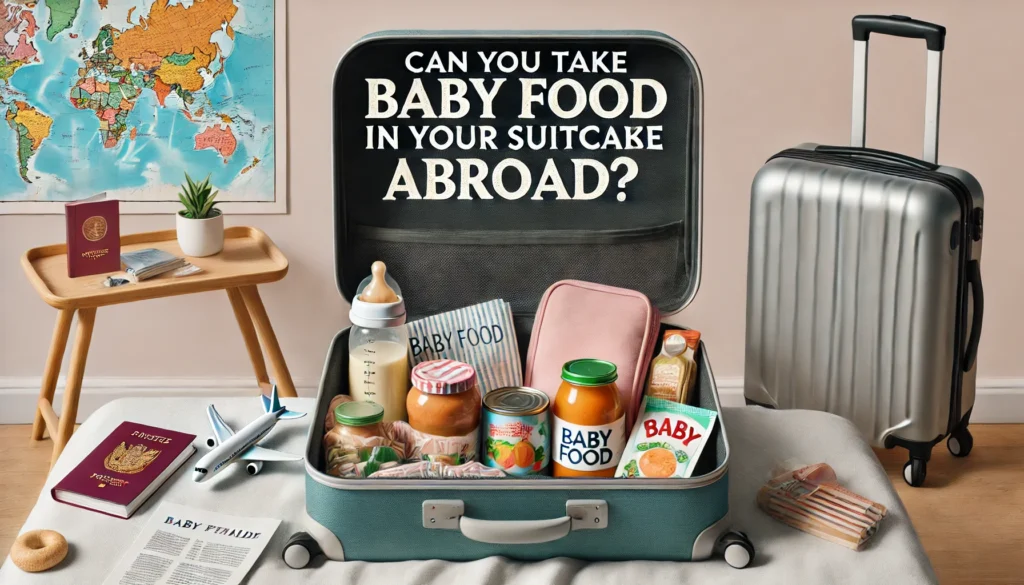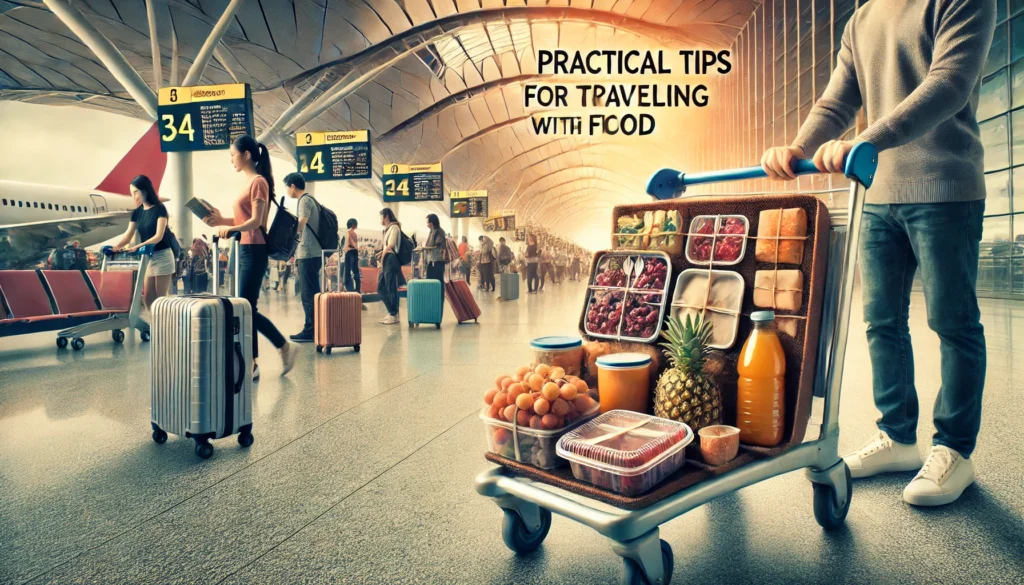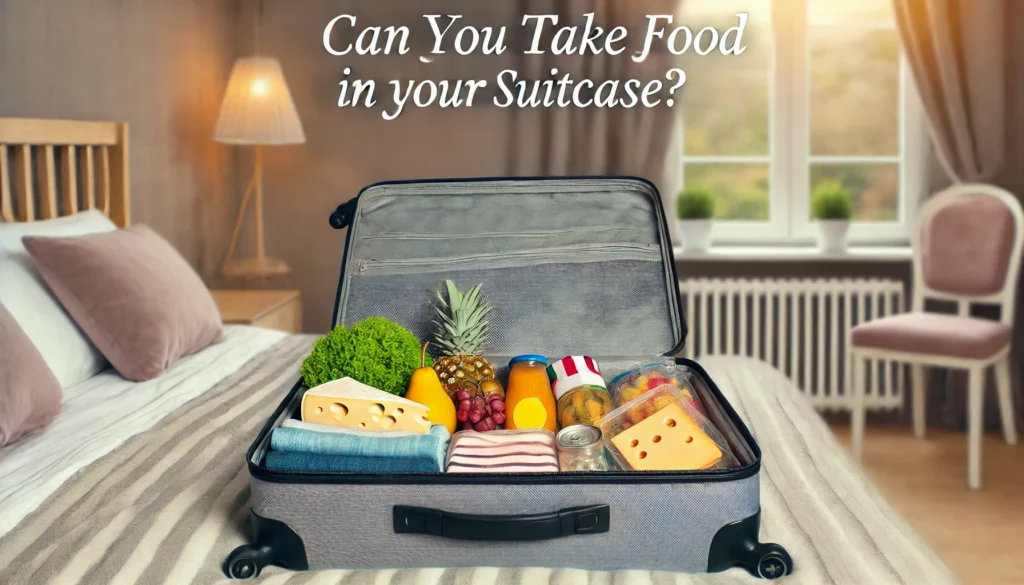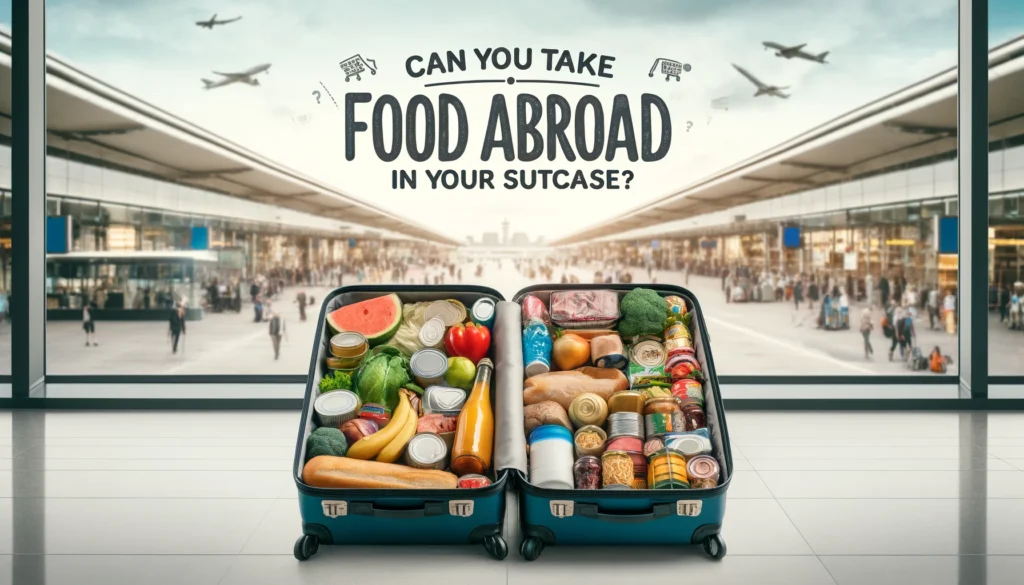Traveling abroad often involves preparing for various challenges, including what you can pack in your suitcase. A common question travelers ask is, “Can you take food abroad in your suitcase?” This guide aims to answer that question in detail and provide you with all the necessary information regarding traveling with food.
Understanding Regulations for Taking Food Abroad
Before you pack any food in your suitcase, it’s crucial to understand the regulations of both your home country and your destination. Moreover, Many countries have strict rules about what can be brought in to prevent the spread of diseases, pests, and invasive species.
What Food Can You Take in Your Suitcase Abroad?
When considering what food can you take in your suitcase abroad, it is essential to differentiate between types of food. Generally, commercially packaged & sealed foods are more likely to be allowed. However, fresh fruits, vegetables, meat, and dairy products often have stricter regulations.
Tips for Packing Food:
- Check Country Regulations: Research the specific regulations of your destination country regarding food items.
- Pack Non-Perishable Foods: Moreover, Consider packing items like dried fruits, nuts, and packaged snacks.
- Declare Your Items: Always declare any food items when going through customs to avoid fines or confiscation.
Can You Take Baby Food in Your Suitcase Abroad?

Moreover, Traveling with a baby requires extra preparation. Many parents wonder, “Can you take baby food in your suitcase abroad?” The answer is generally yes but with certain conditions.
Guidelines for Packing Baby Food:
- Pack Sufficient Quantity: Ensure you pack enough baby food to last the journey and a bit extra for delays.
- Commercial Packaging: Baby food in commercial, sealed packaging is usually acceptable.
- Documentation: Carry a doctor’s note if your baby requires special dietary food.
Packing Tips for Different Types of Food
Dried and Packaged Foods
Dried and packaged foods like cereals, granola bars, and instant noodles are usually safe to carry. These items are less likely to spoil & often permitted by most customs regulations.
Key Points:
- Sealed Packaging: Ensure the food is in its original, sealed packaging.
- Quantity Limits: Be aware of quantity limits imposed by certain countries.
Fresh Foods
Fresh foods, such as fruits, vegetables, meat, and dairy, are often restricted due to the risk of introducing pests and diseases.
Tips:
- Avoid Fresh Produce: To prevent issues, it’s best to avoid packing fresh produce unless necessary.
- Research: Check if your destination has a list of allowed fresh foods.
Homemade Foods
Homemade foods can be tricky. While they may be allowed in some countries, others have strict bans.
Considerations:
- Customs Regulations: Homemade foods often scrutinized more strictly by customs.
- Packaging: Use airtight containers to preserve freshness and prevent spills.
Can You Bring Condiments and Spices?
Condiments and spices can often be packed in your suitcase, but there are exceptions. Ensure they are in small quantities and well-sealed.
Important Tips:
- Commercially Packaged: Use commercially packaged and sealed condiments.
- Avoid Liquids: Avoid bringing large quantities of liquid condiments due to restrictions on liquids.
Practical Tips for Traveling with Food

Traveling with food requires thoughtful packing and awareness of international regulations. Here are some practical tips:
Know the Rules
Research the rules of both your departure and destination countries regarding the food items you plan to bring.
Resources:
- Government Websites: Check the official customs websites for the most accurate information.
- Travel Forums: Use travel forums to read about other travelers’ experiences.
Use Proper Packaging
Proper packaging is essential to avoid spills, spoilage, and attracting pests.
Tips:
- Airtight Containers: Use airtight containers for homemade food.
- Vacuum Sealing: Consider vacuum sealing for dried and packaged foods.
Label Your Items
Moreover, Labeling your food items can help customs officials quickly identify them, potentially speeding up the inspection process.
Labeling Tips:
- Clear Labels: Use clear, legible labels indicating the contents and packaging date.
- Ingredient List: Provide an ingredient list for homemade items.
Be Honest at Customs
Always declare any food items when passing through customs. Thus, Failure to declare can result in fines or confiscation of your food items.
Declaration Tips:
- Honesty is Key: Be upfront about the food you are carrying.
- Keep Receipts: If possible, keep receipts for the food items to show their origin.
FAQ: Can You Take Food Abroad in Your Suitcase?

What happens if I don’t declare food items?
Failing to declare food items can result in fines, confiscation, or legal penalties. It’s always best to declare any food you are carrying.
Can I bring home-cooked meals for my journey?
While you can bring home-cooked meals for your journey, they may not be allowed into the destination country. Check specific regulations and ensure proper packaging.
Are there specific rules for bringing meat products?
Yes, many countries have strict regulations on meat products to prevent the spread of diseases. It’s best to avoid packing meat unless you have thoroughly checked the regulations.
How should I pack liquid food items?
Liquid food items should be packed in leak-proof containers & placed in a separate, clear plastic bag to comply with liquid restrictions in carry-on luggage.
Can I bring food from duty-free shops?
Food purchased from duty-free shops is usually allowed, but it’s still essential to declare these items at customs.
What are the rules for bringing alcohol?
Moreover, Bringing alcohol has specific quantity limits, and it must be declared. Thus. Check the specific regulations of your destination for exact limits.
Can we bring yogurt on a Plane?
Final Thoughts
Traveling with food in your suitcase is possible, but it requires careful planning and understanding of international regulations. Whether you’re packing snacks, baby food, or other essentials, always check the rules of your destination country, use proper packaging, and declare your items at customs. Thus, this ensures a smooth travel experience and helps you avoid any unpleasant surprises at the border.
Furthermore, For more travel tips and information, visit Wings Over Clouds where you’ll find a wealth of resources to make your journey as smooth as possible.
By following these guidelines, you can enjoy your favorite foods abroad without any hassle. Also, check out our latest product range. Safe travels!

